The Dirty War that gripped Argentina from 1976 to 1983 was a dark chapter in the nation’s history. During this period, a brutal military dictatorship systematically targeted political dissidents, resulting in thousands of forced disappearances, torture, and killings. This legacy still resonates within Argentine society today, with memorials and organizations such as the Madres de Plaza de Mayo continuing to seek justice and remembrance for the victims. Exploring this tumultuous era provides a poignant glimpse into a complex and fraught period that forever shaped the country’s trajectory.
Key Points
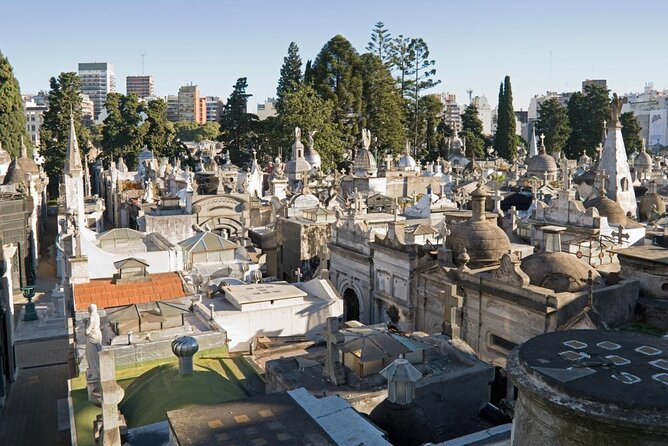
-
The Dirty War was a period of military dictatorship in Argentina from 1976 to 1983, marked by forced disappearances, torture, and extrajudicial killings of perceived political opponents.
-
Parque de la Memoria and Espacio Memoria y Derechos Humanos in Buenos Aires serve as memorials and educational sites, highlighting the atrocities of the Dirty War.
-
The rise of political figures like Evita and Juan Perón in pre-war Argentina provides context for the repression and violence that followed during the Dirty War.
-
The Madres de Plaza de Mayo, a group of mothers whose children were disappeared, have become iconic symbols of resistance and the quest for truth and accountability.
-
Guided tours of the Dirty War sites in Buenos Aires offer an emotionally powerful experience, with knowledgeable guides providing historical context and insights into this dark chapter of Argentina’s history.
Overview of Argentina’s Dirty War
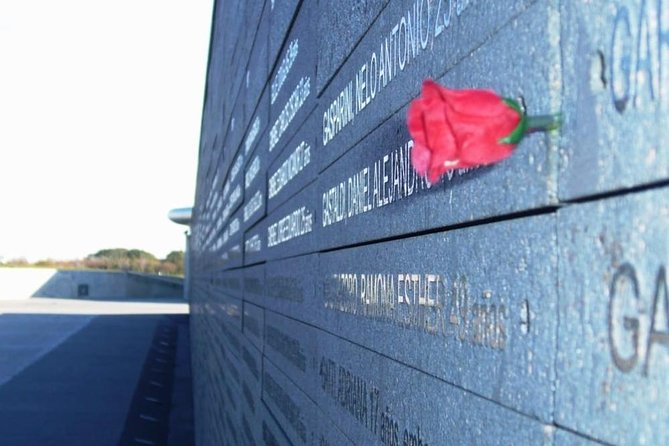
The Dirty War was a dark period in Argentina’s history, marked by a brutal military dictatorship that ruled the country from 1976 to 1983.
During this time, the government waged a campaign of terror against perceived political opponents, resulting in the forced disappearance of thousands of citizens.
The regime’s tactics included arbitrary detention, torture, and extrajudicial killings, leaving a lasting impact on Argentine society.
The Dirty War has been widely condemned as a gross violation of human rights, and its legacy continues to shape the political and social landscape of the country today.
You can also read our reviews of more tours and experiences in Buenos Aires.
Visiting Parque De La Memoria
One of the key stops on the Dirty War tour is Parque de la Memoria, a solemn memorial dedicated to the thousands of victims of the military dictatorship‘s brutal campaign.
The park presents a somber reflection on this dark chapter of Argentina’s history. Visitors learn about the detention and torture practices used by the regime, as well as the legacy of the Madres de Plaza de Mayo, who’ve marched in the nearby Plaza de Mayo since 1977 demanding answers about their disappeared loved ones.
The tour provides an emotional and informative experience, guiding visitors through the park’s thought-provoking exhibits and monuments that honor those who perished during the Dirty War.
Exploring Espacio Memoria Y Derechos Humanos
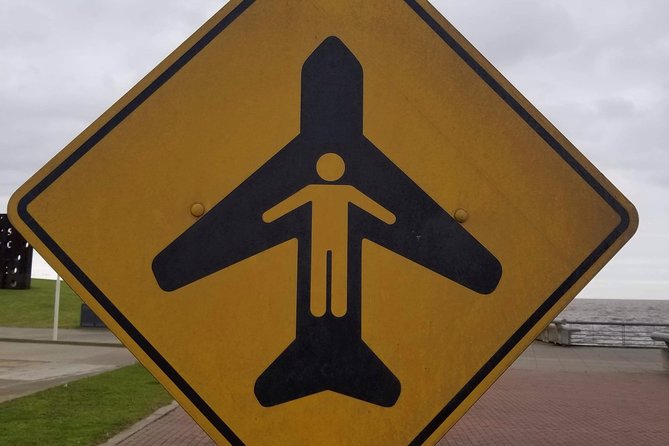
Another key stop on the Dirty War tour is Espacio Memoria y Derechos Humanos, the former navy training school where many victims were tortured and murdered.
Visitors learn about the chilling detention and torture practices used by the military dictatorship. Grim accounts and exhibits portray the horrors of this dark period in Argentina’s history.
The site serves as a somber reminder of the thousands who were disappeared or killed. Through this experience, participants gain a deeper understanding of the Dirty War’s impact and the ongoing efforts to commemorate the victims and promote human rights.
Insights Into Pre-War Argentina
Before plunging into the heart of the Dirty War, the guided tour provides insights into Argentina’s pre-war golden years.
Visitors learn about the rise of political figures like Evita and Juan Perón, who captivated the nation with their populist rhetoric and social policies.
The tour highlights the country’s economic prosperity and cultural vibrancy during this period, offering a stark contrast to the repression and violence that would soon follow.
Through engaging narratives and historical artifacts, the experience paints a vivid picture of Argentina’s pre-war landscape, setting the stage for a deeper understanding of the Dirty War’s devastating impact on the nation.
The Mothers of the Disappeared
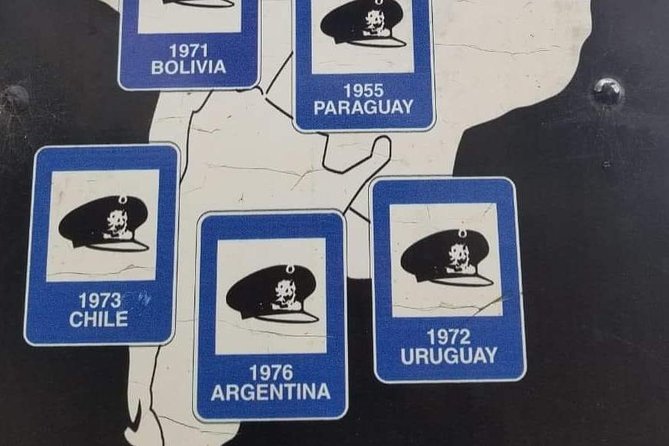
The Plaza de Mayo, a historic public square in Buenos Aires, has witnessed the tireless march of the Mothers of the Disappeared since 1977.
These women, whose children were abducted and murdered during the Dirty War, have been the moral conscience of Argentina, demanding justice and accountability.
Wearing their iconic white scarves, the Mothers have kept the memory of their lost loved ones alive, refusing to be silenced.
Their peaceful protests have become a symbol of resistance against the brutality of the military dictatorship, and their unwavering determination has inspired people around the world.
The Mothers of the Disappeared remain a powerful reminder of the human cost of the Dirty War and the enduring quest for truth and reconciliation.
Emotional Depth of the Tour
The guided tour of Argentina’s Dirty War history in Buenos Aires offers an emotionally powerful and profoundly moving experience for participants.
Visitors are taken through the somber Parque de la Memoria and the former naval school, Espacio Memoria y Derechos Humanos, where harrowing accounts of torture and murder under the military dictatorship are shared.
The knowledgeable guides skillfully navigate the sensitive subject matter, providing historical context and insights that deepen participants’ understanding of this dark chapter.
The tour elicits a range of emotions, from somber reflection to outrage, leaving a lasting impression and a greater appreciation for the resilience of the Argentine people in the face of such atrocities.
Knowledgeable and Engaging Tour Guides
Crucial to the tour’s impact are the knowledgeable and engaging guides who skillfully navigate the sensitive subject matter.
Guides like Howard and John are praised by participants for their deep understanding of Argentina’s Dirty War history and their ability to convey it through compelling storytelling.
Their expertise enriches the experience, helping visitors grasp the gravity of this dark chapter:
- They provide invaluable context, drawing connections between the sites and the broader sociopolitical landscape.
- They sensitively address the complex emotions evoked by the atrocities committed.
- They ensure the tour remains informative yet respectful, fostering an atmosphere of somber reflection.
This guided approach elevates the tour, transforming it into a profoundly meaningful exploration of Argentina’s past.
Pricing and Tour Logistics
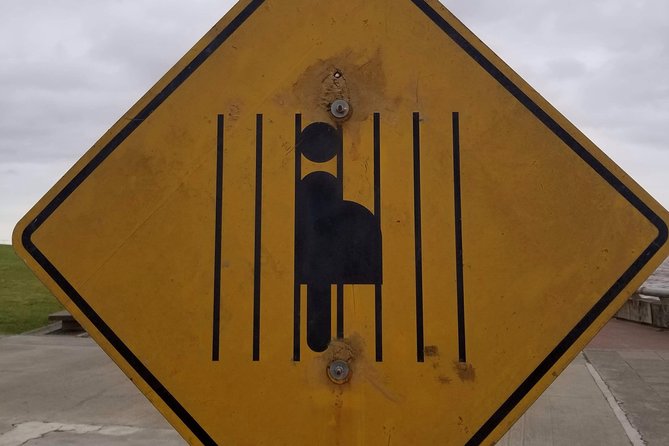
Aside from the impactful guidance provided by the knowledgeable tour leaders, the Buenos Aires Dirty War tour also offers a range of practical logistics to consider.
The tour typically lasts about an hour at each site, with a 10:00 AM start time. Pickup is available from various locations within the city, including hotels, apartments, and ports.
The minimum group size is two people, and the tour isn’t wheelchair accessible, though infant seats are provided.
Travelers can cancel their bookings for free up to 24 hours before the experience. The tour costs start at $217.92, with prices varying based on group size.
Frequently Asked Questions
What Type of Transportation Is Provided for the Tour?
The tour provides pickup and drop-off service from hotels, apartments, and ports in the city, though it’s not wheelchair accessible. Transport is included in the tour price, though other inclusions like food and drinks are not.
Is Photography Permitted at the Tour Sites?
Photography is generally permitted at the tour sites, though visitors are advised to be respectful and avoid disrupting the solemnity of the experiences. Check with the tour guide for any specific restrictions.
Are There Any Additional Stops or Activities on the Tour?
The tour includes visits to Parque de la Memoria and Espacio Memoria y Derechos Humanos, which provide insights into Argentina’s Dirty War history. There are no additional stops or activities mentioned in the overview provided.
Can the Tour Be Customized for Individual Preferences?
The tour can be customized to individual preferences, with flexibility in site visits and duration. Travelers can discuss their interests with the guides to tailor the experience according to their needs and preferences.
What Happens in the Event of Inclement Weather?
In the event of inclement weather, the tour will proceed as scheduled. The tour operator provides ponchos or umbrellas to participants, ensuring the experience continues regardless of weather conditions. Detailed instructions are provided to visitors prior to the tour’s start.
Recap
The legacy of Argentina’s Dirty War remains a somber and profound part of the nation’s history. Visiting memorials like Parque De La Memoria and Espacio Memoria Y Derechos Humanos provides a deeper understanding of this dark period, the victims, and the ongoing pursuit of justice. Knowledgeable tour guides offer a poignant window into this challenging chapter, honoring the victims and educating visitors about this complex and impactful era.
More Tour Reviews in Buenos Aires
Not for you? Here's more things to do in Buenos Aires we have recnetly reviewed
- 2 Best Canoe And Kayak Experiences In Buenos Aires
- 9 Best 2 Day Tours In Buenos Aires
- 6 Best BBQ Experiences In Buenos Aires
- 25 Best Dining Experiences In Buenos Aires
- 20 Best Full-Day Tours In Buenos Aires
- 2 Best 3 Day Tours In Buenos Aires
- 10 Best Sailing Experiences In Buenos Aires
- 19 Best Photography Experiences In Buenos Aires
- 5 Best Coffee Tours And Tastings In Buenos Aires
- 25 Best Dinner Tours In Buenos Aires
- 5 Best Craft Beer Tours And Tastings In Buenos Aires
- 25 Best Cruises And Boat Tours In Buenos Aires
